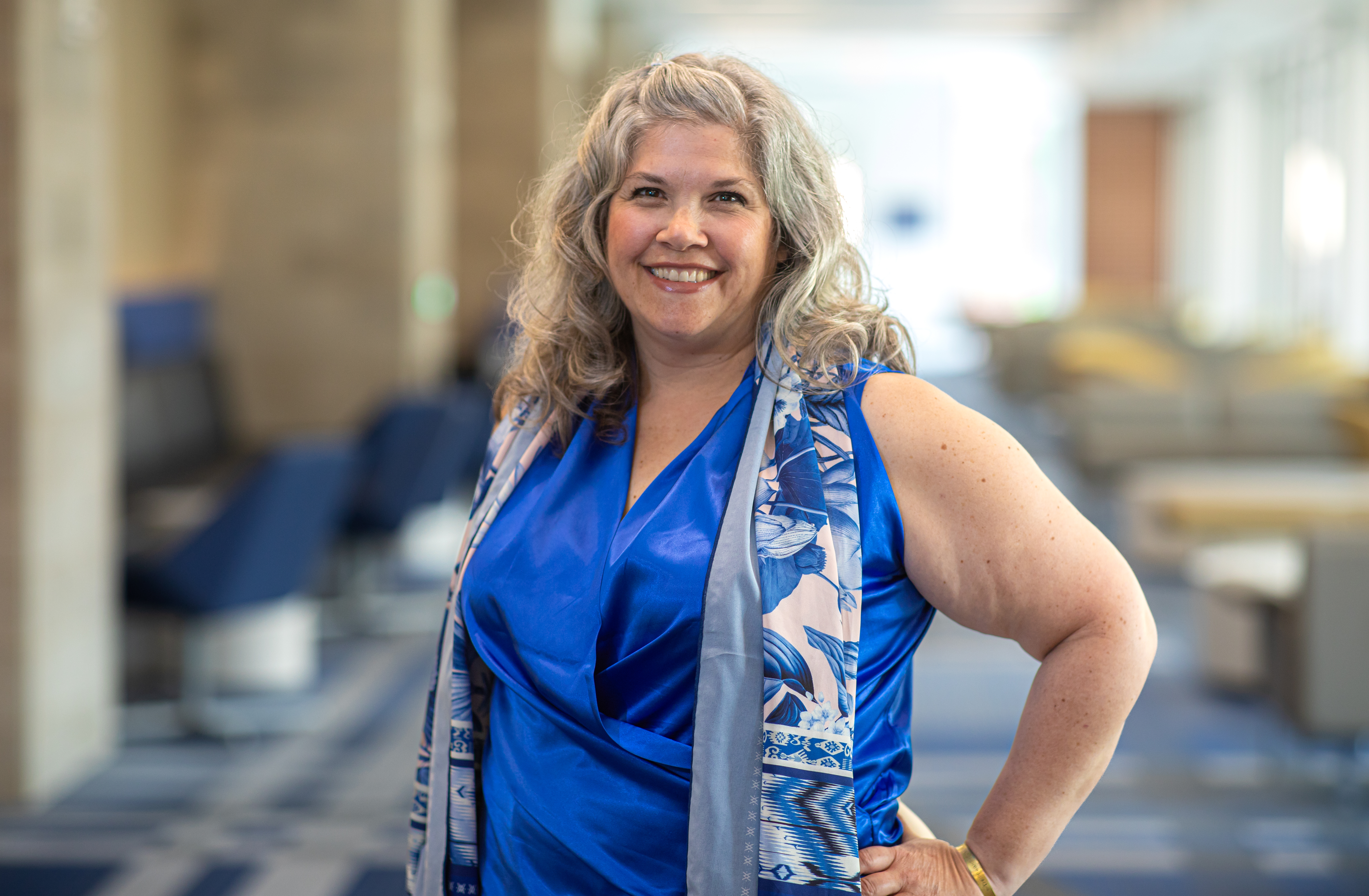 Dr. Kelly G. Pennell is the third Director of the University of Kentucky Superfund Research Center (UKSRC) and Professor of Civil Engineering. From 2016, until being named Director on July 1, 2020, she served as the Assistant Director of UKSRC and worked closely with Dr. Bernhard Hennig, who previously served as the UKSRC Director for 17 years, and now serves as the Deputy Director.
Dr. Kelly G. Pennell is the third Director of the University of Kentucky Superfund Research Center (UKSRC) and Professor of Civil Engineering. From 2016, until being named Director on July 1, 2020, she served as the Assistant Director of UKSRC and worked closely with Dr. Bernhard Hennig, who previously served as the UKSRC Director for 17 years, and now serves as the Deputy Director.
Since her arrival at UK in 2013, Dr. Pennell’s research has emphasized knowledge brokering, field studies to investigate environmental engineering and science research, and collaboration with other National Institute of Environmental Science (NIEHS) Superfund Research Program (SRP) researchers. Dr. Pennell is uniquely positioned to conduct innovative field studies, serve as a knowledge broker to inform policy decisions using evidence-based information, and lead complex teams because of her experience in practice, policy, and academic settings, as well as administrative roles within large multidisciplinary centers. As Director of UKSRC, Dr. Pennell is passionate about inclusive research, and is committed to reaching new (and different) levels of excellence—by listening, learning and responding, amidst ongoing challenges.
Dr. Pennell gained experience as a practicing engineer at an international environmental consulting firm, ARCADIS, Inc. (1997-2002). She conducted site characterization activities, designed remediation systems to clean-up extensive contamination at large manufacturing sites, including some the most contaminated sites in the country (e.g. Superfund sites), and responded to oil spills and other environmental disasters. These efforts were aimed to prevent and reduce contaminant exposure risks in communities. While conducting these activities, she also conducted research on chemical oxidation processes for treating trichloroethene as part of her masters (MS) thesis in environmental engineering at Rose-Hulman Institute of Technology and became a licensed Professional Engineer (PE) in 2001.
She earned her PhD at Purdue University in civil (environmental) engineering with a focus on sequential water disinfection processes for long-term space missions and gained significant training within a large multidisciplinary research center supported by the National Aeronautics and Space Administration (NASA) Specialized Center of Research & Training (NSCORT). The NSCORT program at NASA funded programs at universities for many decades, aiming to enlarge the pool of talented individuals to investigate interconnected problems across the entire fields of biology, medicine, and human interactions.
As a post-doctoral scholar and research faculty (2005-2010), Dr. Pennell gained extensive experience working within Brown University’s NIEHS SRP. In this role she actively engaged federal, state and local decision makers while serving as a policy liaison bridging knowledge across disparate stakeholders, including faculty from the School of Engineering, Medical School, and School of Public Health, as well as community groups, and officials at federal and state governmental agencies.
In 2010, Dr. Pennell accepted a tenure-track faculty position at University of Massachusetts-Dartmouth, as an Assistant Professor of Civil Engineering (2010-2013). In 2013, she joined University of Kentucky as an Assistant Professor of Civil Engineering, promoted and tenured to Associate Professor of Civil Engineering (2016-present). She received a National Science Foundation CAREER award in 2015, which is NSF's most prestigious awards in support of early-career faculty who have the potential to serve as academic role models in research and education. The title of the award was, Vapor Intrusion, Knowledge Brokers and Environmental Health - A Three-Dimensional Perspective.
From 2016-2019, Dr. Pennell served in leadership roles (e.g. associate director and acting director) at the Kentucky Water Resources Research Institute (KWRRI), which addresses water resources across the state of Kentucky, including both rural and urban communities. She also served as the Interim/Acting Director of the UK Tracy Farmer Institute of Sustainability and the Environment (TFISE) from 2018-2019, which includes over 100 faculty and staff across more than ten academic units.
